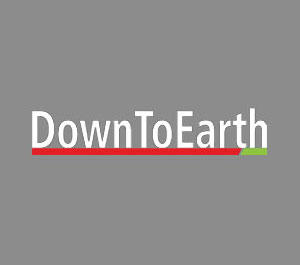Rich nations can't dump toxic waste on poor nations
178 nations agree to enforce Basel Ban Amendment
Basel Convention’s tenth Conference of Parties (COP 10) proved the sceptics wrong. It achieved a major breakthrough on the final day when 178 Parties agreed to allow an early entry into force of law of the Basel Ban Amendment.
The Ban Amendment prohibits all export of hazardous wastes, including electronic wastes and obsolete ships from developed to developing countries.
The deal was brokered by the Indonesia and Switzerland Country Led Initiative (CLI) and was strongly promoted by the developing countries, China, the European Union and non-profits, including the Center for International Environmental Law, the NGO Platform on Shipbreaking and the Basel Action Network.
-----------------------------------------
Countries such as the United States who have never ratified the Convention will have to accept the ban as an integral part of the Convention once it enters force
The CLI draft decision includes three mutually supportive elements: entry into force of the Ban Amendment; environmentally sound management (ESM) of hazardous wastes; and legal clarity around key Convention provisions.
The Ban Amendment, adopted in 1994, effectively bans, as of 1 January, 1998, all forms of hazardous waste exports from the 29 wealthiest countries of the Organization of Economic Cooperation and Development (OECD) to non-OECD countries. But the Ban Amendment had been stalled for all these years due to uncertainty over how to interpret the Convention.
17 more have to ratify ban
Now it has been decided that the Ban Amendment will go into force when 68 of the 90 countries that were Parties to the Convention in 1995, ratify the agreement. This has been determined on the basis of 'fixed time approach'. Fifty-one countries have already ratified the amendment; 17 more are needed to ratify it. It is expected that this can be achieved in two to three years. At present, there are 178 Parties to the Convention.
“Finally, the blockade has been lifted and the Basel Ban that has been held hostage now for many years is liberated. The Ban Amendment ensures that developing countries are not convenient dumping grounds for toxic factory waste, obsolete ships containing asbestos, or old computers coming from affluent countries. It enforces the Basel Convention obligation that all countries manage their own hazardous waste,” said Jim Puckett, Executive Director of the Basel Action Network.
Support for the Ban has been very strong from a vast majority of countries, including China, the European Union, and developing countries. Countries that opposed the Basel Ban in the past, including Canada, Australia, New Zealand, Japan and India, decided to withdraw their opposition to allowing its entry into force at the earliest possible date. The United States has also opposed the ban but is not a Party of the Convention.
Already 33 of the 41 developed countries on whom the export ban applies have implemented it nationally, but the decision on the final day means that more countries will feel the diplomatic pressure to ratify, and countries such as the United States who have never ratified the Convention will have to accept the ban as an integral part of the Convention once it enters force.
Basel Convention v Hong Kong Convention
In a related development, Basel Parties disagreed that the International Maritime Organization’s Hong Kong Convention on ship recycling, provided a level of control equal to that of the Basel Convention. Legal experts and developing countries in attendance voiced the concern that because the Hong Kong Convention has no intention of minimising movement of toxic ships to developing countries, it was not sufficient, not legally equivalent, and therefore the Basel Convention must continue to be active to prevent the dumping of old toxic ships on the beaches of developing countries.
Reports
Press Releases
Down to Earth

August 23, 2017

August 23, 2017

August 23, 2017

August 23, 2017
.png)
August 23, 2017




Share this article